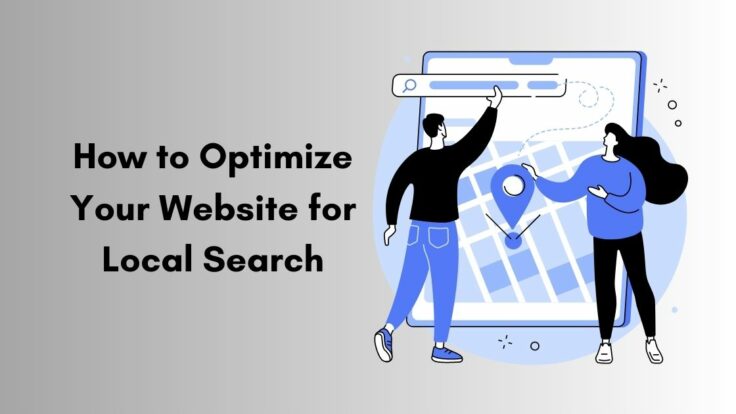In today’s competitive online landscape, optimizing your website for local search is essential for attracting customers in your geographical area. Local search engine optimization (SEO) ensures that your business appears prominently in local search results when potential customers are looking for products or services in your vicinity. In this comprehensive guide, we will provide you with industry data insights and actionable steps to help you optimize your website for local search effectively.
Understanding the Importance of Local Search Optimization: Local search optimization is crucial for businesses targeting a specific geographic area. Consider the following data points:
- According to Google, nearly 46% of all searches have local intent.
- 78% of local searches on mobile devices result in offline purchases.
- 50% of consumers who conducted a local search on their smartphone visited a store within a day.
Benefits of Local Search Optimization:
Optimizing your website for local search offers several key benefits:
-
Increased Visibility:
Optimizing your website for local search helps you appear in the coveted “local pack” of search results, which typically includes a map, reviews, and contact information. This prime placement increases your visibility and attracts local customers.
-
Targeted Traffic:
By targeting specific geographic keywords, you attract highly relevant and localized traffic to your website. This increases the likelihood of conversions and sales as you are reaching customers who are actively seeking your products or services in their area.
-
Competitive Advantage:
Local SEO provides an opportunity for small businesses to compete effectively against larger enterprises by targeting local customers. With localized optimization efforts, you can position your business as a go-to option in your area.
Step-by-Step Guide to Local Search Optimization:
-
Perform Keyword Research:
- Identify relevant local keywords specific to your business and location. Tools like Google Keyword Planner, SEMrush, Moz’s Keyword Explorer or Keyword Research Tool by DOT SEO TOOLS can help you find high search volume, low competition keywords.
- Incorporate these keywords naturally into your website’s content, including headings, page titles, meta descriptions, and URLs.
-
Create a Google My Business (GMB) Listing:
- Set up and verify your GMB listing, ensuring accurate and consistent information about your business, including name, address, phone number (NAP), website, and business hours.
- Add relevant categories, photos, and a compelling business description to attract potential customers.
- Encourage customers to leave reviews on your GMB listing as positive reviews can boost your local search rankings.
-
Optimize On-Page Elements:
- Optimize your website’s title tags, meta descriptions, headers, and content to include local keywords and location-specific information.
- Include your NAP information in the footer or header of your website to ensure consistency across all pages.
- Create location-specific landing pages or city-specific content to target different areas you serve and address local customer needs.
-
Build Local Citations and Backlinks:
- Submit your business to online directories, such as Yelp, Yellow Pages, and industry-specific directories. Ensure consistent NAP information across all directories.
- Seek opportunities to earn backlinks from authoritative local websites, such as local news publications, industry associations, or local business partners. These backlinks can help establish your website’s authority and improve local search visibility.
-
Encourage Online Reviews:
- Actively request and respond to customer reviews on platforms like Google, Yelp, and industry-specific review sites.
- Provide exceptional customer service to encourage positive reviews, as they can contribute to your overall local search rankings.
- Respond promptly and professionally to both positive and negative reviews to demonstrate your commitment to customer satisfaction.
-
Optimize for Mobile:
- Ensure your website is mobile-friendly and responsive, as a majority of local searches are performed on mobile devices. You can check your website here.
- Optimize page load speed and minimize any mobile usability issues to provide a seamless user experience.
- Implement structured data markup, such as Schema.org, to provide search engines with additional information about your business, such as opening hours, reviews, and address.
-
Local Content and Social Media Engagement:
- Create localized content targeting local events, news, or community initiatives. This demonstrates your involvement and relevance within the local community.
- Engage with your local audience on social media platforms, such as Facebook, Instagram, and Twitter. Share updates, promotions, and relevant content to build connections and foster engagement.
Conclusion: Optimizing your website for local search is crucial for businesses looking to attract customers in their specific geographic area. By following this step-by-step guide, you can improve your local search rankings, increase visibility, and attract highly targeted traffic to your website. Remember to regularly monitor and refine your local SEO efforts to stay ahead of the competition and consistently attract local customers.







